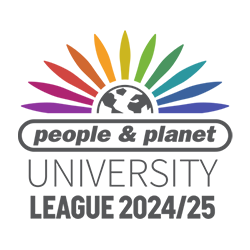-
Study
-
Undergraduate
- Search for a Course
- Undergraduate Open Day & Events
- Application Guides
- Northumbria University UCAS Exhibitions
- Foundation Years
- Undergraduate Fees & Funding
- School & College Outreach
- Continuing Professional Development
-
Postgraduate
- Postgraduate Study Degree
- Postgraduate Research Degrees
- Postgraduate Open Days and Events
- Postgraduate Fees & Funding
- Flexible Learning
- Thinking about a Masters?
- Continuing Professional Development
- Change Direction
-
Student Life
- The Hub - Student Blog
- Accommodation
- Life in Newcastle
- Support for Students
- Careers
- Information for Parents
- Students' Union
- Northumbria Sport
- Be Part of It
-
-
International
International
Northumbria’s global footprint touches every continent across the world, through our global partnerships across 17 institutions in 10 countries, to our 277,000 strong alumni community and 150 recruitment partners – we prepare our students for the challenges of tomorrow. Discover more about how to join Northumbria’s global family or our partnerships.
View our Global Footprint-
Applying to Northumbria
- European Union
- Our London Campus
- Northumbria Pathway
- International Events
- Entry Requirement and Education Country Agents
- Global Offices
-
Northumbria Language Centre
- Faculty Requirements
- Acceptable English Requirements
- Pre-sessional English Language and Study Skills
- Academic Language Skills Programmes (ALS)
-
International Fees, Funding & Scholarships
- International Undergraduate Fees
- International Undergraduate Funding
- International Masters Fees
- International Masters Funding
- International Postgraduate Research Fees
- International Postgraduate Research Funding
- International Money Matters
-
Life at Northumbria
- International student support
- Careers
-
International Mobility
- Current Northumbria Students
- Incoming Exchange Students
-
-
Business
Business
The world is changing faster than ever before. The future is there to be won by organisations who find ways to turn today's possibilities into tomorrows competitive edge. In a connected world, collaboration can be the key to success.
More on our Business Services -
Research
Research
Northumbria is a research-rich, business-focused, professional university with a global reputation for academic quality. We conduct ground-breaking research that is responsive to the science & technology, health & well being, economic and social and arts & cultural needs for the communities
Discover more about our Research -
About Us
-
About Northumbria
- Our Strategy
- Our Staff
- Place and Partnerships
- Student Profiles
- Alumni Profiles
- Leadership & Governance
- Academic Departments
- University Services
- History of Northumbria
- Contact us
- Online Shop
-
-
Alumni
Alumni
Northumbria University is renowned for the calibre of its business-ready graduates. Our alumni network has over 246,000 graduates based in 178 countries worldwide in a range of sectors, our alumni are making a real impact on the world.
Our Alumni - Work For Us
What will I learn on this module?
You will learn about how male protagonists have been represented in a range of American fiction from the twentieth century to the present, for example how they have come to symbolise the ‘idea’ of America. You will learn about concepts such as the construction of masculinity, feminist critiques of the masculine as universal symbol of humanity and how these intertwine with the idea of America as a nation in the novels and short stories studied. You will study theoretical and critical articles alongside the texts to inform your critiques of the fiction.
How will I learn on this module?
You will be required to read either a novel or a short story collection each week, alongside assigned critical or theoretical articles that will help you to reflect on the texts through a conceptual lens.
If you choose to study on campus delivery will be primarily via student-led seminar discussion, facilitated by a tutor. If you choose to study by distance learning you can complete the module via a Virtual Learning Environment (VLE), populated with on-line learning materials. Whether you are on-site or distance learning you will study the same texts and have access to the same materials. On-site students are encouraged to take part in the discussion boards by way of building a cohort with the distance learning students. The assessment for both on-site and distance learning students is the same combination of non-assessed and assessed e-tivities (on-line tasks). You will be expected to undertake both directed and independent learning. Directed learning generally will take the form of preparation for seminars for on-site students and weekly reading guidance for the distance learning students, where you will be expected to contribute to discussion whether this is in the seminar or through the VLE. Independent learning generally will take the form of further reading and investigation, and revision/preparation for the assessment of the module. Assessments for all students taking this module will include a portfolio of e-tivities that have two roles. First, e-tivities will include non-assessed assessments that ensure the student has the technological capacity in terms of hardware and digital literacy to complete the module. Second, the e-tivities will include the assessed assessments that test the student’s aptitude in relation to the learning outcomes.
How will I be supported academically on this module?
Campus-based students: By attending and participating in seminar discussions and activities, you will receive oral feedback on your ideas from your tutors, guidance on the content of the module and on the assessment tasks. Further one-to-one support from your tutors is available via advertised scheduled ‘office hours’ throughout the semester or by emailing to make an appointment or for advice. You are strongly encouraged to share your ideas for your assignments with your tutor in advance of submitting your assessed work.
Distance-learning students: By engaging and participating in the e-tivities, preparation tasks and online discussions, you will receive online feedback from tutors. You are strongly encouraged to share your ideas with your tutor before submitting assessed work. The VLE will be in every way comparable to on-site delivery. In place of seminars will be weekly reading, guidance on how to approach the materials, and follow-up discussion via engagement with on-line discussion forums. Distance learning students are provided with the same opportunity to discuss, analyse and question their understanding of the reading material via the discussion forums. In addition, distance learning students will be supported by an Associate Tutor, who will moderate (rather than facilitate) the online discussions, thereby fulfilling the same role as the seminar tutor.
What will I be expected to read on this module?
All modules at Northumbria include a range of reading materials that students are expected to engage with. Online reading lists (provided after enrolment) give you access to your reading material for your modules. The Library works in partnership with your module tutors to ensure you have access to the material that you need.
What will I be expected to achieve?
Knowledge & Understanding:
1. A nuanced understanding of the concept of male masculinity and its portrayal in twentieth- to twenty-first century American fiction.
2. Advanced knowledge of the idea and ideals of America as expressed in literature symbolically through representation of male protagonists in twentieth to twenty-first century American fiction.
Intellectual / Professional skills & abilities:
3. A capacity to synthesise theoretical and historical knowledge and understanding and apply it appropriately
4. A developed ability to present a coherent argument in written form, demonstrating independent research and analysis and thus exhibiting transferable key skills.
Personal Values Attributes (Global / Cultural awareness, Ethics, Curiosity) (PVA):
5. Enhanced cultural awareness of gender as a social construct
How will I be assessed?
Formative: You will produce a draft essay plan, of no more than one page, for the first essay, to discuss with your tutor.
1. 1 x 3,000-word essay (50%)
This summative essay will be chosen from a range of options. It will require you to engage with two texts studied on the module thus far and to draw on criticism and theory studied on the module as well as independently researched material. (MLOs 1,3,4)
Formative: You will produce a draft essay plan, of no more than one page, for the second essay, to discuss with your tutor.
2. 1 x 3,000-word essay (50%)
This summative essay will be chosen from a range of options. It will require you to engage with two further texts studied on the module and to draw on criticism and theory studied on the module as well as independently researched material. You will also have the option to create your own essay title, in consultation with one of the tutors. (MLOs 1,2,3,5)
Written feedback will be given on the summative work within the University’s standard number of working days on the standard feedback sheet.
You are also encouraged to use tutorial time for additional supplementary feedback. Oral feedback on the formative essay plans will be given by your tutor in an individual tutorial.
Pre-requisite(s)
none
Co-requisite(s)
none
Module abstract
Please find details of this module in the other sections provided.
Course info
Credits 30
Level of Study Postgraduate
Mode of Study 1 year Full Time (Distance Learning)
3 other options available
Department Humanities
Location City Campus, Northumbria University
City Newcastle
Start September 2025
All information is accurate at the time of sharing.
Full time Courses are primarily delivered via on-campus face to face learning but could include elements of online learning. Most courses run as planned and as promoted on our website and via our marketing materials, but if there are any substantial changes (as determined by the Competition and Markets Authority) to a course or there is the potential that course may be withdrawn, we will notify all affected applicants as soon as possible with advice and guidance regarding their options. It is also important to be aware that optional modules listed on course pages may be subject to change depending on uptake numbers each year.
Contact time is subject to increase or decrease in line with possible restrictions imposed by the government or the University in the interest of maintaining the health and safety and wellbeing of students, staff, and visitors if this is deemed necessary in future.
Useful Links
Find out about our distinctive approach at
www.northumbria.ac.uk/exp
Admissions Terms and Conditions
northumbria.ac.uk/terms
Fees and Funding
northumbria.ac.uk/fees
Admissions Policy
northumbria.ac.uk/adpolicy
Admissions Complaints Policy
northumbria.ac.uk/complaints















